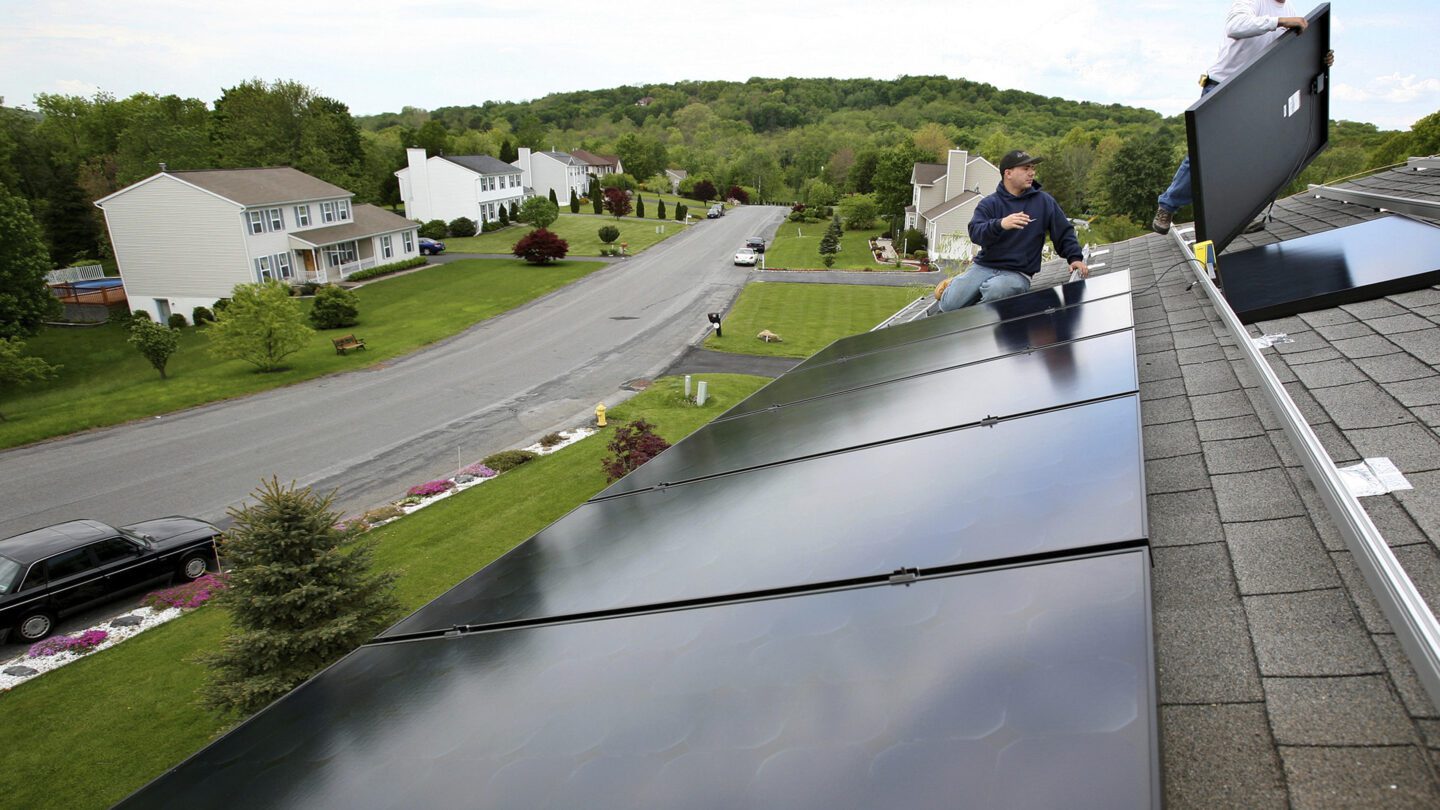Georgia solar supporters foresee industry growth with passage of federal budget bill

Craig Ruttle / Craig Ruttle
Supporters of solar power in Georgia are praising the recent passing of the Inflation Reduction Act. The bill includes tax incentives for solar manufacturing, which is a growing industry here.
A measure that Georgia’s U.S. Senator Jon Ossoff initially introduced as a separate bill that was later included in the big federal budget bill incentivizes companies to manufacture more components for solar panels in the U.S.
“This is going to boost our domestic manufacturing of solar products and solar technology,” Ossoff said in Piedmont Park this week, where he was joined by officials from Georgia’s solar industry to celebrate the bill passing and the expected growth for the industry here.
“This is a national security issue. This is about American energy independence. And this is about good-paying American jobs,” he said.
That could include jobs at the largest solar panel plant in the Western Hemisphere, Qcells, which is in Dalton. The company announced a $171 million expansion earlier this year that would add close to 500 jobs at a new nearby facility. More could come, said Scott Moskowitz, head of public affairs at Qcells.
“The US is nearly entirely dependent on imported products to satisfy its needs in this critical sector,” he said. “This bill changes that. It changes that because it’s going to encourage investment. It’s going to encourage innovation. And it’s going to encourage scale.”
That’s on the manufacturing side.
When it comes to using those panels, Jennette Gayer, executive director of the non-profit Environment Georgia, said she hopes more people and businesses will be able to tap into solar power since the federal budget bill also includes tax incentives for people to install solar panels on their roofs.
Georgia sends close to $19 billion out of state every year for coal, natural gas and petroleum to generate electricity, she said. That’s money she said she’d rather see spent here, “by putting solar on roofs by putting solar in fields.”
Georgia has seen a lot of growth in solar. Most of that has been in utility-scale solar farms, but later this year, state officials will consider expanding a program that makes rooftop solar more affordable for homes and businesses. The Georgia Power program has been capped at 5,000 customers, but solar supporters will be advocating for expanding it when Georgia Power rate case hearings begin in September.








